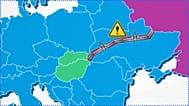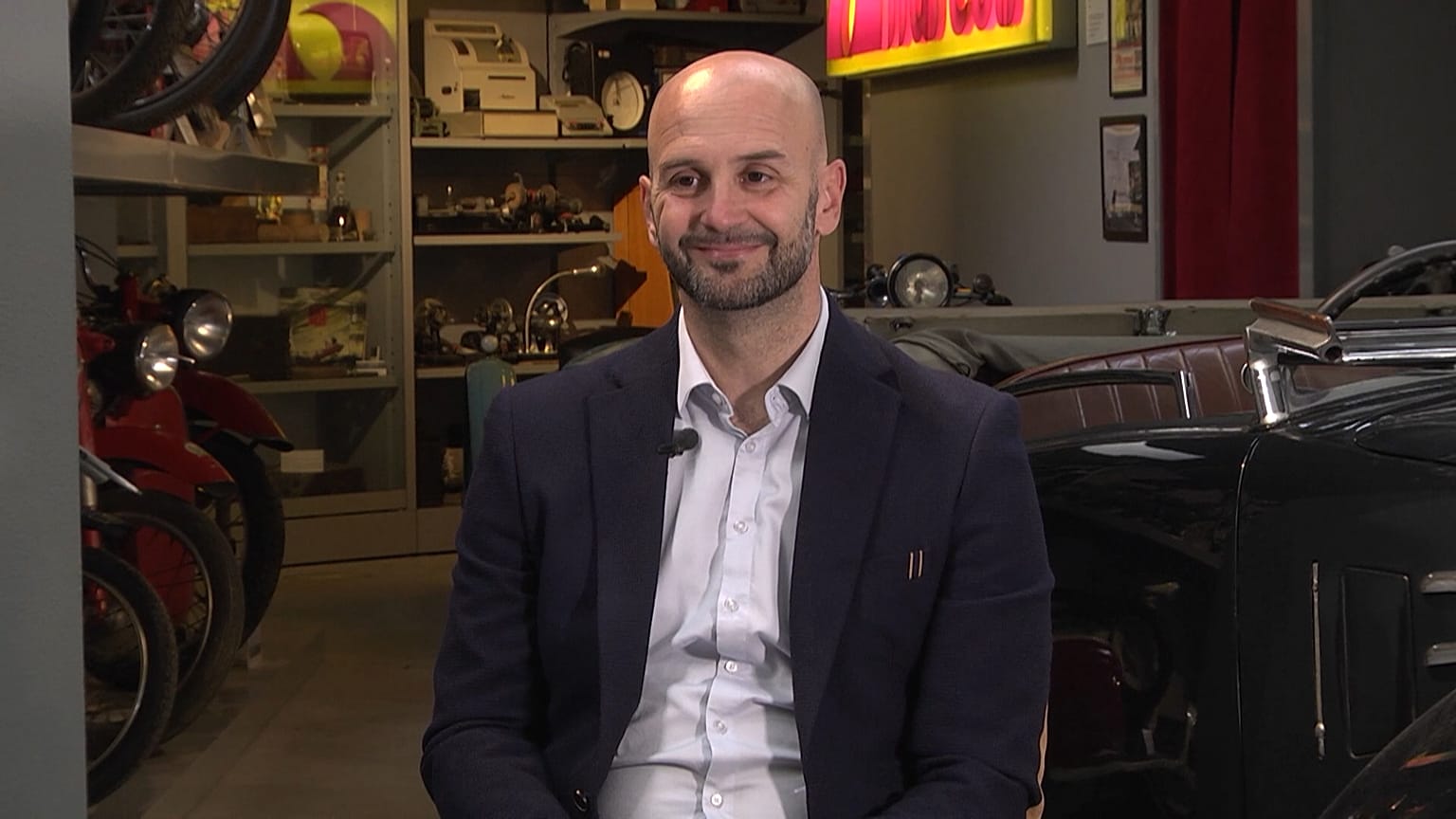The right-wing European Conservatives and Reformists Group could change the EU's course over the next five years, if they make big gains in June's European elections. Co-president Nicola Procaccini outlines his vision for Europe in The Global Conversation, with Vincenzo Genovese.
With polls long predicting a surge in support for right wing parties in June's EU elections The European Conservatives and Reformists group appears poised to have significant new heft within the legislative assembly. The bloc brings together nationalist-leaning parties, including Brothers of Italy, Spain's Vox and Law and Justice of Poland. They take a tough line on issues including immigration, environmental laws and EU executive powers, more generally. But are they eurosceptic? That's the first question The Global Conversation put to ECR co-president Nicola Procaccini.
 ADVERTISEMENT
ADVERTISEMENT
 ADVERTISEMENT
ADVERTISEMENT
"No, that is very wrong," insists the Brothers of Italy politician. "We want to go back to the original idea of the European Union, which is an alliance of nations doing a few things together, but important things, doing those things that nation-states alone wouldn't be able to do in the best way.
"We fight against those who instead want to change the European Union in a federalist sense, which is not the original model of the European Union. When it was born in 1957 with the Treaty of Rome, the European Community was conceived this way. It was conceived as a community of states that should not deal with everything, but with a few things. Instead, unfortunately, over time there has been an attempt to strip the nations of competencies, bringing them under the umbrella of the European Union. In this way, in our opinion, an attempt has been made to homogenize situations that should not be homogenized."
EU power battle
This antipathy to the notion of EU federalism feeds into how the ECR competes in elections. The group doesn't have a single lead candidate, a so-called Spitzenkandidat, believing such a role undermines democracy at a national level:
"There is no Spitzenkandidat in the European treaties establishing the European Union, because the president of the European Commission is chosen by the governments, not by the parties, and we insist on that," Procaccini says. "We claim the fact that it is the governments who are the only legitimate ones to choose the head of the European Commission, not the parties.
"This is the main reason. So any other candidate for us is no good, because they're not the candidate of our parliamentary group. But also because the concept is wrong. We continue to want to strip the nations and the governments legitimately elected by people of the powers that are there in black and white in the founding treaties of the European Union" he adds.
Migration Pact only a start
Among the biggest issues on which the ECR believes national governments must have the final say is migration policy. Reforms contained in the recent Asylum and Migration Pact went some to address right-wing concerns, but Procaccini wants to further toughen measures against irregular migration.
"We think that this pact is still not the right way to deal with illegal immigration and immigration in general. But objectively it is a first step in the right direction," he says. That's why we voted for it and supported it. It is finally going in the direction that Giorgia Meloni has been advocating for years, however she was considered a dangerous extremist and fascist who wanted to drown people.
"What is the solution? The solution is to stop the departures, because by the time the migrants are on European soil it is already too late. The talk of placement and distribution is one that should not even be made. If we are able to determine upstream who is entitled and who is not entitled to asylum, we can let in only those who are entitled. At that point we are talking about 15 percent of the overall total of illegal immigration.
"We will then be able to break up the most odious business there is, which is that of traffickers. And at the same time we will be able to govern a phenomenon that needs to be governed, because legal immigration is something that all nations need. But it must be limited in quantity, and if possible, there must also be choice. Migrants must also be trained from a professional point of view. This serves the host nation and it also serves the migrant, who at that point is not forced to put himself on the margins of our society or become a worker for organized crime, but can instead find a place in our societies that is decent for him as well."
Rethink on Green Deal
The ECR is also seeking to change the EU's direction of travel on tackling climate change. It opposed almost all the measures of the EU's Green Deal, which aims to achieve carbon neutrality by 2050. So does the group not share this ambition?
"We share the goal of having the least possible impact on the environment and nature." Procaccini says. "This has to be done with common sense, with balance. These are two concepts, common sense and balance, that have been totally banished by European policy in recent years, sacrificed on the altar of a perverse ideological furore that has caused CO2 emissions to rise -- because they rose in 2023 despite having plummeted in the European Union.
"This has caused a devastation of our competitiveness as well as a devastation of the environment and nature. Right now the owners of the green transition -- those who are making it -- are the Chinese, who are benefiting competitively from European choices. At the same time they are not at all concerned about the environmental standards that we are concerned about. Because then the batteries, the photovoltaic panels are made from coal-fired power plants, without giving a damn about anything else," he declares.
To watch the interview in full click on the video above.














